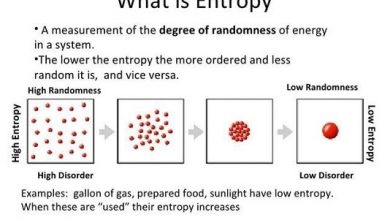Social Emotional Skills definition with 3 groups main skills and impact
What are socio-emotional skills?
In this article we will provide you the Social Emotional Skills definition with 3 groups main skills and impact.
Social Emotional Skills are a set of characteristics and skills related to the personal development of the individual, which help to maintain healthy relationships with other people and with ourselves.
We can say that socio-emotional skills build conditions for relationships between different social groups to be more accessible , helping to overcome everyday challenges.
However, for these skills to be developed, it is essential that the intrapersonal relationship, that is, that of the person with himself, is also built in a healthy way, especially in relation to emotions.
The 3 groups of socio-emotional skills
Social-emotional skills improve the quality of life , as they provide greater emotional stability, enabling the person to take more balanced and appropriate actions even in the face of complex and difficult situations.
It is possible to group socio-emotional skills into 3 divisions.
1-Group of competences related to knowledge
Knowledge-related competencies are those that broaden the individual’s view of the world.
They allow the person to exercise their curious and creative side, enabling a better analysis of reality.
They help in the perception of artistic and cultural manifestations, and this contributes to interpersonal relationships, enriching coexistence and social participation, and minimizing feelings of prejudice and indifference.
Knowledge competencies help build a more inclusive and participatory environment.
2-Group of skills related to skills
Competencies related to skills are those linked to communication and understanding.
They are essential for conveying information and for other people to understand the message.
These can include oral, visual, body, sound, digital communication, etc.
Non-verbal language, for example, is often very effective at conveying feelings and emotions .
In addition, it can be used to develop critical awareness, enabling the understanding of situations experienced daily.
3-Group of competencies related to attitudes and character
This group of competencies invites us to reflect on the importance of behaving ethically in any environment and with anyone.
Attitude and character competencies make us realize that our actions can affect other people and the world we live in.
The exercise of these skills begins with the practice of empathy, which is precisely the ability to look at events from the perspective of another person, thus facilitating understanding and dialogue.
What are the main socio-emotional skills?
1-Responsibility
When a professional is hired by a company, he becomes part of a team, and both the organization and the other employees rely on his participation to achieve results.
Therefore, it is essential that professionals have a committed attitude in relation to their duties , fulfilling their part in the work, assuming flaws and successes.
2-Leadership
The socio-emotional competence of leadership is very important for managers, but not only for them, to be able to inspire and motivate other employees, whether they are subordinates or not.
The leader contributes to the creation of an environment of productivity and dedication among employees , including identifying strategies that can motivate and stimulate employees even more.
3-Initiative and autonomy
These two characteristics are essential for professionals to take control of their own careers, becoming responsible for their development and attitudes.
These socio-emotional skills also include recognizing failures and building on lessons learned from them.
4-Flexibility and adaptability
The business environment is in full change and every day new demands and situations are demanded from businesses and their employees.
Faced with this reality, it is important for professionals to be flexible and adaptable to facilitate this constant transition .
5-Collaboration
Mutual collaboration is one of the most important socio-emotional skills and is based on learning and seeking alternatives together.
Professionals who have this characteristic have attitudes that avoid rivalries and facilitate interpersonal relationships .
6-Creativity
The competence of creativity is directly related to the ability to innovate and build alternatives to the challenges imposed by everyday life.
In addition, in the business environment, it gives the professional the necessary skills to create differentiated strategies , to deal with clients and interact with co-workers.
7-Communication
Improved communication is important for anyone, in any area of life, but especially in the professional aspect.
This skill is the one that allows the efficient exchange of information, and that favors the interaction between co-workers, managers and customers.
8-Empathy
Empathy is the ability to see the world through the eyes of the other, and thus, be able to see the situations presented through another perspective. And that doesn’t mean agreeing or disagreeing, but just understanding.
To develop empathy, it is necessary to have active listening , being present in the moment, without allowing thoughts to take the person away from the experience.
9-critical thinking
Critical thinking allows us to act rationally in everyday life, offering the possibility to observe, analyze and evaluate the positive and negative sides of any situation and thus act with clarity and efficiency.
10-Resilience
Remaining resilient, that is, not letting yourself be discouraged in the face of challenging situations, is essential for the new times, in which changes are constant.
The resilience is a key feature and is directly related to the ability to automotive and self – knowledge .
How do Social Emotional Skills impact work?
Social-emotional skills are quite subjective and usually difficult to measure, so they often end up in the background.
However, the lack of them becomes very evident when problems of coexistence and relationships, whether in the domestic or professional environment, begin to appear.
At this point, the person realizes that they do not have the emotional capacity to deal with problems in a healthy way.
Over the past few years, companies have realized just that. There is already a clear understanding that a high-performing professional is formed by much more than just technical skills.
Professionals need to solve everyday issues with creativity and resilience, which arise with increasing frequency.
These benefits can be felt not only at work, but also in personal life.
What are the benefits of having professionals with socio-emotional skills?
1-are good at solving problems
Usually these professionals show an extra dose of empathy, which helps to solve problems of or with other people, understanding what is happening, talking and always offering a friendly word to those who need it.
2-they are good leaders
Often, professionals with developed socio-emotional skills excel in human interactions, are highly flexible, self-aware and have developed emotional intelligence.
All these characteristics and skills are the basis of a great leader who knows how to relate to different types of people.
3-are curious people
People with developed socio-emotional skills always want to learn more about people and the environment around them.
Precisely for this reason, they allow themselves to invest time in getting to know other people, even if this is not part of their attributions.
In addition, they are also curious about themselves, looking for new ways to get to know themselves.
How can Social Emotional Skills be developed?
It has already been understood that having socio-emotional skills is very important for professional and personal life, but what to do if you don’t have them?
It is very common to find adults who have not developed these skills, as their parents’ generation and the school did not have the knowledge to encourage this development.
What needs to be understood is that socio-emotional skills are fully trainable .
This learning can also promote moments of creative communication, improving the synergy between the collaborators of the work team.
You may have noticed that socio-emotional skills are directly related to the individual’s level of self-knowledge.
Therefore, self – knowledge and emotional intelligence are the first steps to develop these skills.
It takes awareness to understand that, although it seems easy, really knowing who we are, recognizing our strengths and, above all, our weaknesses, is not always so simple. Even because we change throughout life.
Emotional intelligence is a psychology concept that deals with the individual’s ability to deal with emotions, both of the person and of others.
According to David Goleman, journalist and psychologist, author of the book “Emotional Intelligence: The Theory That Redefines What It Means to Be Smart”, emotional intelligence has 5 pillars:
- knowledge about your own emotions;
- possess social skills;
- manage your feelings;
- self motivation;
- empathy.
Developing these pillars is key to improving socio-emotional skills, but there are other actions that can help as well.
1. Keep up with your emotional
Daily, we experience situations that make us uncomfortable and the most common thing is to try to let it go.
The problem is that, over time, all this accumulation of suppressed emotions turns into irritation and lack of concentration, which can get in the way of everyday life.
To avoid this situation, the ideal is not to accumulate emotions, communicating clearly what is needed, setting limits in relationships and expressing your dissatisfaction at the moment and in the most opportune way.
2. Invest in personal relationships
Building healthy personal relationships is directly related to the productivity and engagement of a company’s employees, which, in turn, contribute to increasing the company’s results.
3. Work on your self-confidence
Self-confidence is fundamental to having better results in personal or professional life, and it is directly linked to self-discipline.
People who believe in their own potential are proactive in the face of conflict, take more risks, and are more creative.




